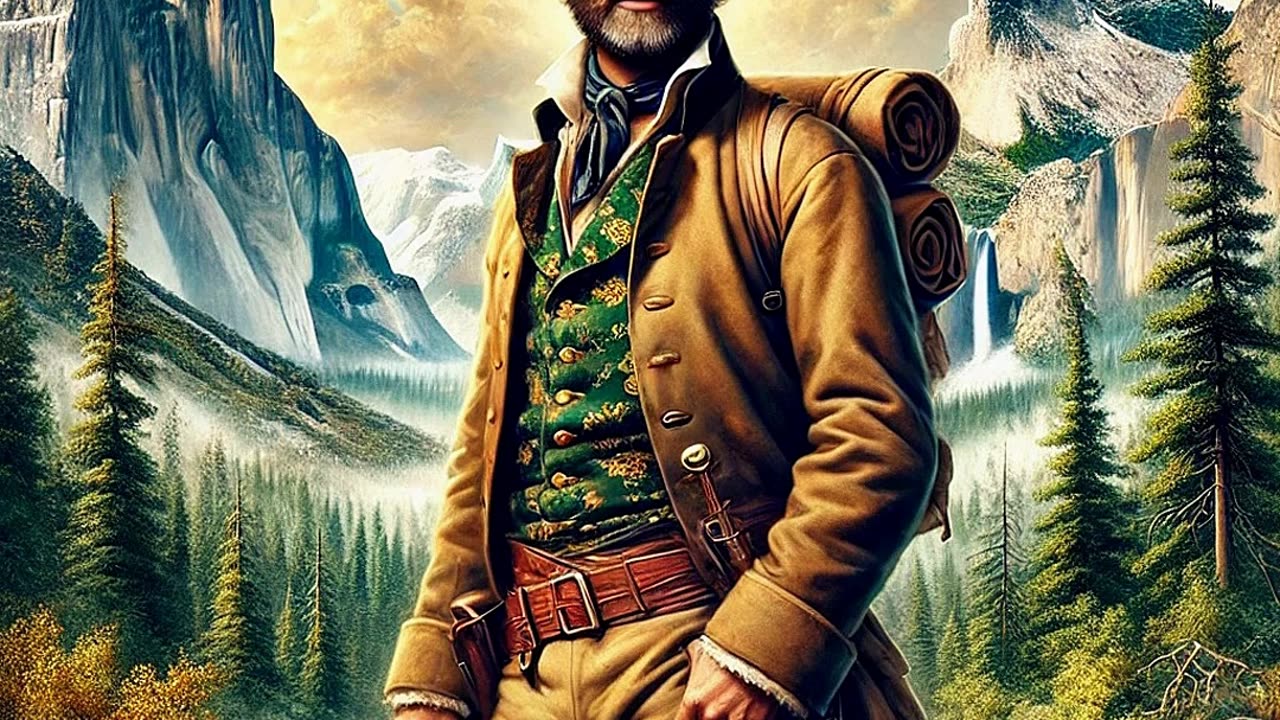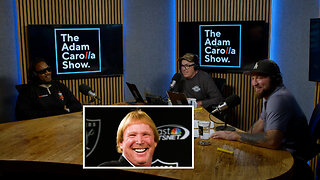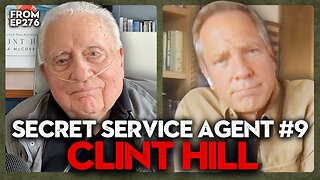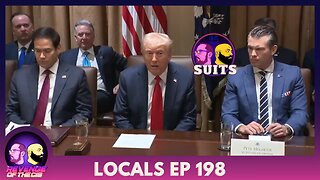Premium Only Content

John C Frémont Tells his Story as the Pathfinder through the Rocky Mountains for Early Settlers
Presented to you by: http://www.HistoricalConquest.com
Read more on our blog at: https://www.historicalconquest.com/blog
My name is John C. Frémont, and my life has been a journey of exploration, adventure, and a bit of controversy. You might know me as an explorer, a military officer, or even a politician. Let me tell you my story—one that helped shape the expansion of the United States and opened up the American West.
I was born on January 21, 1813, in Savannah, Georgia. My childhood wasn’t easy. My father passed away when I was young, and my family struggled financially. But I was determined to rise above my circumstances. I worked hard in school, especially in math and science, and eventually enrolled at the College of Charleston. I didn’t graduate, but my skills in surveying and engineering opened doors for me.
In the 1830s, I joined the U.S. Topographical Corps, mapping uncharted territories for the government. That’s where my life as an explorer truly began. By the 1840s, I was leading expeditions into the western frontier, charting paths through the Rocky Mountains, the Sierra Nevada, and the Oregon Trail. These expeditions were tough—long treks through harsh terrain with little food or water—but they revealed the vast potential of the West. I became known as the “Pathfinder,” and my reports inspired many Americans to head west in search of new opportunities.
One of the most memorable parts of my story took place during the Bear Flag Revolt in 1846. I was in California on an expedition when tensions between American settlers and Mexican authorities boiled over. I played a key role in helping the settlers declare independence from Mexico and establish the short-lived California Republic. When the Mexican-American War broke out, I joined the fight, helping secure California for the United States.
After the war, I decided to try my hand at politics. I served as one of California’s first U.S. senators and later became the first presidential candidate for the newly-formed Republican Party in 1856. My platform was bold: I opposed the expansion of slavery into new territories. Although I lost the election to James Buchanan, my candidacy set the stage for the Republican Party’s future success.
But life wasn’t always smooth sailing. I faced my share of failures and controversies, including a court-martial during my military career and financial struggles later in life. Despite these setbacks, I continued to work for what I believed in, including supporting the Union during the Civil War and speaking out against slavery.
I passed away on July 13, 1890, in New York City. By then, the country I had explored and fought for had grown and changed in ways I could never have imagined. My life was far from perfect, but I’m proud of the role I played in shaping the United States and opening the West for generations to come.
So here’s what I want you to take away from my story: life will challenge you, and not everything you do will succeed. But if you follow your passions, stand up for your beliefs, and keep moving forward, you can leave your mark on history. Thank you for listening.
Visit us at: https://www.historicalconquest.com/marketplace
#historicalconquest #history #historical #SecondIndependence #abolition #Freedom #Slavery #Liberty #Independence #Justice #Freedom #colonialera #colonialamerica #constitution #usconstitution #unitedstates #unitedstatesofamerica #texas #texashistory #texasindependenceday #texasrevolution #wildwest #Tombstone #Cowboys #USMarshals
-
 0:59
0:59
The Historical Conquest Channel
8 days agoAllan Pinkerton Tells His Story as the First Private Eye Agency and Saving President Lincoln
20 -
 49:04
49:04
Lights, Camera, Barstool
1 day agoIs The Monkey The Worst Movie Of The Year?? + Amazon Gets Bond
18.7K2 -
 24:19
24:19
Adam Carolla
20 hours agoDiddy’s Legal Drama Escalates, Smuggler Caught Hiding WHAT? + Philly Eagles & The White House #news
31.6K5 -
 10:12
10:12
Mike Rowe
2 days agoClint Hill: What A Man. What A Life. | The Way I Heard It with Mike Rowe
25.4K5 -
 1:31:52
1:31:52
Redacted News
4 hours agoBOMBSHELL! This is war! FBI whistleblowers reveal Epstein files being destroyed? | Redacted News
112K292 -
 48:55
48:55
Candace Show Podcast
4 hours agoSTOP EVERYTHING. They FINALLY Mentioned ME In The Blake Lively Lawsuit! | Candace Ep 152
93.4K105 -
 1:02:51
1:02:51
In The Litter Box w/ Jewels & Catturd
1 day agoWhere are the Epstein Files? | In the Litter Box w/ Jewels & Catturd – Ep. 750 – 2/26/2025
75.1K69 -
 1:59:06
1:59:06
Revenge of the Cis
6 hours agoLocals Episode 198: Suits
67.3K10 -
 1:38:56
1:38:56
SLS - Street League Skateboarding
1 day agoTop Moments from the Second Half of the 2024 SLS Championship Tour! All The 9’s 🔥
45.8K1 -
 24:22
24:22
Breaking Points
8 hours agoHouse GOP RAMS THROUGH Medicaid Cuts
51.3K34